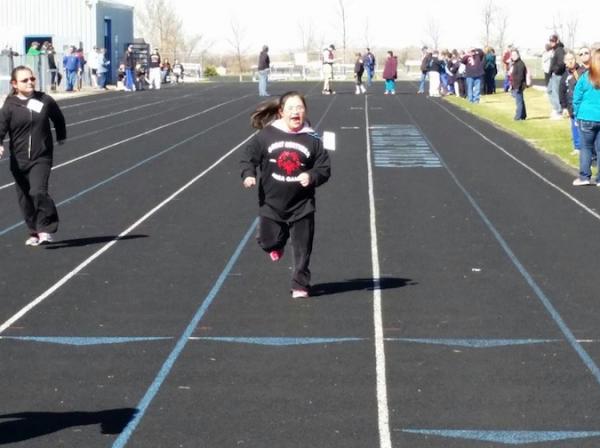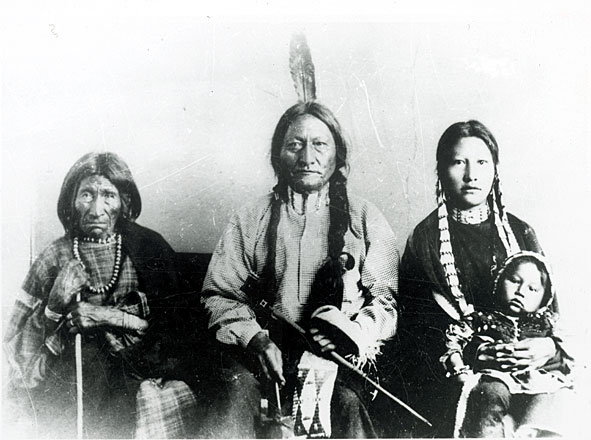For the third consecutive year, Sway-Anne Byrd will compete in the Area Special Olympic Games in her hometown. But for the 14-year-old Cherokee girl, who lives in Havre, Montana, this year’s games will have some added significance. That’s because the teenager, who was born with Down syndrome, will carry the torch during the opening ceremonies of the Games, which will be staged on Wednesday.
The opening ceremonies will feature Byrd running a lap of the school’s track with the ceremonial lit torch. Besides carrying the torch, Byrd will also be leading all of the other participants in the games as they too will follow her and run a lap as well. “I’ve only seen adults carry the torch,” Byrd’s mother Amy told ICTMN. “Since she’s only 14, this is pretty cool.”
The coaches of athletes participating in the games as well as some of the volunteers choose one athlete to be the torchbearer at the opening ceremonies. Officials contacted the family a few weeks ago to see if Sway-Anne would be interested in the position. Byrd’s family considers it a huge honor that Sway-Anne was chosen to have a key role in the Games’ opening ceremonies. “It’s like if you were playing football or if you were playing basketball and you win an award,” Amy Byrd said of her daughter’s torchbearer selection. “This is at that level for her.”

And the excitement is building as the games approach. Byrd’s mother said her daughter was rather elated on Monday night as she practiced for her lap with the torch. “She was jumping up and down,” she said. “She was so excited.”
The Area Special Olympic Games are held each year in Havre. Should they choose to do so, participants can also take part in the annual Montana Special Olympics. At the state level in Montana there are annual summer and winter Special Olympics. “We haven’t gone to the state games as of yet,” Amy said. “She’s very independent, but it’s a very large atmosphere there. I don’t think she’s quite ready for that yet.”
As she did a year ago, Byrd will participate in four track and field events at Wednesday’s games. She will run in the girls’ 50-metre and 100-metre races in her age group. And she will also take part in the standing long jump event and the softball throw (the shot put equivalent for Special Olympians). At the 2014 games, Byrd captured gold medals in her 50-metre race and standing long jump. And she won silver and bronze medals in her 100-metre and softball throw events, respectively.
“She really enjoys it,” said Byrd’s mother.
Read more at http://indiancountrytodaymedianetwork.com/2015/04/28/cherokee-teen-will-carry-torch-special-olympics-160170






